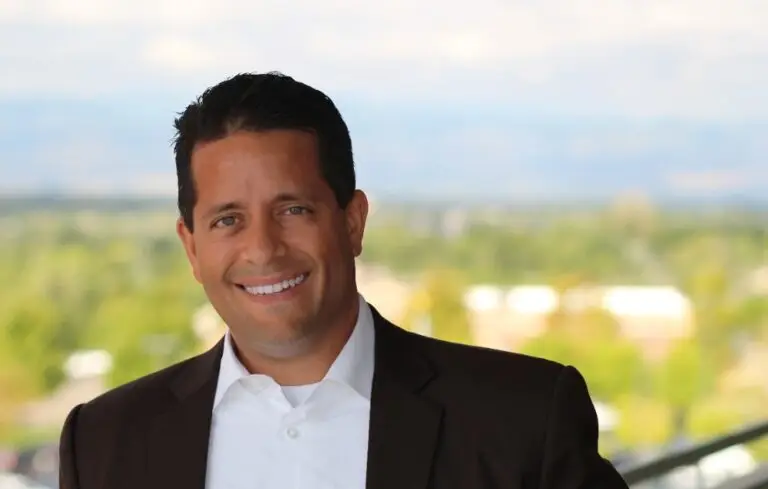In the beginning, companies sold products. Then they sold services. In recent years, the fashionable suggestion has been that companies sell experiences and solutions, meeting the needs and aspirations of their customers.
Companies, indeed, do all of these things. But increasingly, what companies sell are experience projects. To understand the difference, think of an athletic shoe company, such as Adidas. A focus on products means a focus on selling running shoes. A focus on experiences might mean they sell you a membership to a local running club. A focus on solutions might mean they figure out how to help you reach your goal weight.
While these approaches clearly offer more value than simply selling you a pair of shoes, they also have limitations. Selling products limits the revenues a company can make from clients: unless it is innovating and continuously updating its product offering, customer attrition tends to be high, and it can be hard to incentivize repurchases. Selling experiences provides intangible benefits that are hard to quantify and measure, and it often requires a focus on meeting the needs of one single customer, preventing any mass production. Selling solutions became popular in the early 2000s when customers didn’t know how to solve their problems. But today, in the internet age, people can do their own research virtually and define the solutions for themselves.
A focus on selling projects instead would mean helping people to do something more specific, such as running the Boston Marathon. Adidas could provide you with its traditional sports gear, but in addition could include a training program, a dietary plan, a coach and a monitoring system to help you achieve your dream. The project would have a clear start and end date and a clear goal, to finish the marathon. Indeed, much more so than products, the possibilities with projects are virtually endless.
Philips: Cash Rich, Stagnating Sales
Founded in Eindhoven, in the south of the Netherlands, in 1891 by Gerard Philips and his father Frederik, Philips began by producing carbon-filament lamps. Its success was achieved by a culture of innovation and the speedy introduction of new products. Over more than a century of profitable existence, the range of products offered by the company has mushroomed. Today, Philips produces everything from automated external defibrillators to energy-efficient lighting for entire cities. It even applies its smart-sensor technology to teeth brushing.
This profusion of products means that Philips is cash-rich, yet sales in the past decade stagnated and concerns about the company have been reflected in its stock price. Faced with this changing reality, Philips took a long, hard look at itself. It identified the absence of focus and lack of strategy implementation capabilities as crucial elements that needed to be addressed. In the mid 2010s, with intensifying competition, the Philips board decided to split the organization into three different companies: Consumer Health, Lighting and Healthcare.
It then went on to launch ‘Accelerate’, a program aiming to accelerate growth by transforming each new independent company into a focused organization. At the heart of the transforming changes brought about by the Accelerate program are projects. In addition, over the years, Philips had become an intricate blurred matrix, with accountabilities and responsibilities shared between products, segments, countries, regions, functions and headquarters.
To simplify this convoluted and archaic organization structure, Philips put projects center stage. Projects were identified as the best management structure to break up silos and encourage teams to work transversally, or end-to-end, in the organization. As part of this, Philips Health Tech was divided into just three divisions. Essential to making this happen was a substantial increase in the work executed through projects—and moving from selling customers a few products every year to creating an engaged relationship over decades.
Philips Health Tech: From Products to Projects
One of the biggest challenges facing Philips Health Tech is that the life expectancy of its products is becoming shorter and shorter. Soon after launch, products are copied by the competition, which means they must be priced more cheaply. Soon, they become a commodity. This removes any opportunity for long-term, steady high margins. Philips has experienced this even with its high-end healthcare products. Shifting its emphasis to selling projects rather than products was a strategic response to this problem.
For example, Philips sells high-tech medical devices. In the past, it sold them only as products, which it still does. But now Philips seeks out the projects in which its products will be used. If a new healthcare center is being considered, Philips will seek to become a partner from the very beginning of the project, including the running and the maintenance of the new center.
Among the results of this project focus at Philips is a partnership with Westchester Medical Center Health Network aimed at improving healthcare for millions of patients across New York’s Hudson Valley. Through this long-term partnership, Philips provides Westchester with a comprehensive range of clinical and business consulting projects, as well as advanced medical technologies, such as imaging systems, patient monitoring, telehealth and clinical informatics solutions.
Philips is not alone in using an increased focus on selling projects as a means of disruptive transformation. At Microsoft, the company’s entire focus has shifted to cloud services, most of which are offered as projects. It now has around 10,000 operating projects. The biopharmaceutical industry is also seeking to work with governments and other purchasers on focused treatment programs, rather than simply offering individual drugs.
By looking at the way products will be used once they’ve been sold, companies can strategically aim to become a part of the product’s full lifecycle. Whether B2B or B2C, focusing on projects rather than on products alone can create a deeper, richer relationship with customers that will far outlive even the most advanced product.







